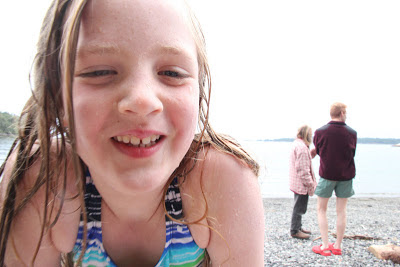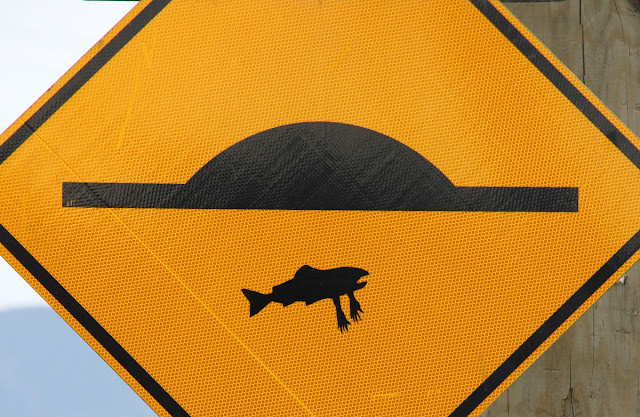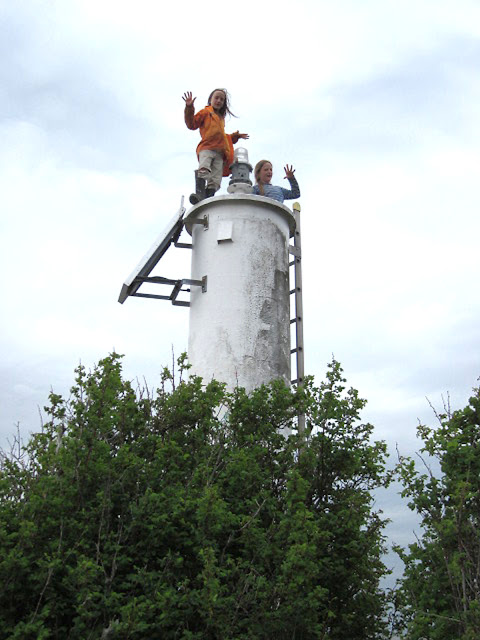Yes that's right. I said the nothingness of our plans. We have no plans. We just have kids.
That's what's so bloody scary!! We were raised on plans! We need plans! Alan Watts ☮ had nothing on our plan-toting teachers and their threats of loser-hood and failure!! So, just to soothe our sorry selves a bit, here are some of the things we do. Of course, they're not so much recipes as new ways to look at things, and organizational choices that help us feel less neglectful. But they works for us. At least they do when we get it right and do these things before panicking.
Disclaimer:
These are our ideas. They`re what work for us, because they come from our hearts.
Your successes will come from your hearts.
Libraries
We love our books. We have piles of them. Literally 3 libraries full: kids fiction, adults everything, and kids non-fiction, which is slowly becoming so interesting to us parents that it's basically the most frequented library, now... We don't feed our kids the books, or even 'strew', as I understand some people do, but we do make an effort to buy interesting books when we come across them.
And there they are. Cool books. It is amazing to me how many times the kids can read the same book. Tal has read a couple of his favourite novels about 5 times... but just when I start to worry, he seems to have broken into his father's programming books, or old comics, art textbooks, or obscure books from the recesses of our forgotten shelves. And these books spark the most interesting curiosities and adventures!
I don't have to do anything about this, of course. The books begin the adventures and the kids finish them. But I admit I love to join them for the ride, sometimes.
Art Area
Every home should have an art area. For us it was the dining table for a long time; sometimes the kitchen floor, but recently we've managed to make it part of Rhiannon's bedroom, which means a LOT more freedom, since it doesn't have to be cleaned up so often, for meals.
The key to a good art area is having an open space with free-range and plenty of good supplies. And by good, I don`t mean expensive, I mean well-chosen. Good supplies are open-ended. They're materials that can be used in any way, and that don't limit the imagination. Bad supplies are things like colouring books, stickers, and other gimmicky things, which basically inject too much of the manufacturer's imagination into our creation. Good supplies are practically anything. We have an entire shelf of different types of paper (LOTS of discarded office printouts on white letter paper from Pappa`s work), cheap felt for sewing, origami books* and other such inspirational things. In a drawer we have a bunch of extras, including strings, sewing supplies, tapes, and some of the messier things like paints and modelling clay, and in a rotating caddy in the middle of the big table we have a really huge assortment of felt-pens, pencils, rulers, scissors, glues, etc.
The kids aren`t the only ones who make use of this excellent area, and when their inspirations take them further than their supplies or area will allow, we either move outside or into my professional studio, where the rules are stricter (to protect some of my equipment and half-finished art) but there`s some access to different supplies.
*I think origami books, while they are still instruction books, can be good if we lead by example in taking the instructions and playing with them, so that they're more a jumping-off-point for discovery, than a recipe to a particular end.
Equipment
We do have a fair amount of equipment - useful tools for open ended creation and exploration: shovels, rakes, hoses, aquariums, microscopes, telescopes, cameras, pots, bowls, and pitchers... etc. It's important to have the basic tools. Some people have access to these tools through learning centres and other such organizations, but where we live is a bit rural, and we find it useful to have these things at home. We don't spend much money on things like new clothes, toys, or dining out. We spend it on good quality used equipment that can help us with our exploration.
 |
| Rhiannon helping to build the new porch joists |
We have the usual amount of house and yardwork, I think, and I`m honest with the kids about it. I don`t like being the one who does all the work, and I expect them to help out with the garden, the housekeeping, the animal care, the cooking, etc. It doesn`t always go the way I hope it will, but for the most part I think they understand that a family is a group effort, and the the lifestyle we all love is our mutual reward. Like strawberries. Yes. Strawberries. Those are worth a whole lot of weeding and watering! Hugs from the dog? Worth feeding her. Having clean clothes worth doing some laundry. These are real rewards. And often just sharing time working together as a family is a reward in itself.
TV and Movies
We don`t have a TV, actually, but there are some seriously good shows out there, and we have watched a few of them online. Same, of course, with movies, documentaries, and YouTube channels. When we find things that we like, we watch them, and, unless we`re having 1:1 parent time, the kids are welcome to join us. Sometimes we even join them for their shows!! We learn the most interesting things about the world, this way... things we`d never have ventured out to discover on our own.
Take The Kids to Work!
Not everybody happens to have an artist for a parent, but most parents have some sort of shareable interest, "hobby", or work, and I do believe that bringing the kids along for the ride - letting them see our own inspiration and process - is one of the best things we can offer them.
One beauty of this is the physical work we do, as parents, but another is the ideas we share with them. I can't describe how irritated I feel when people tell their kids they're too young to understand, or that certain topics are 'grown up things'. I don`t shelter my kids from ideas - no matter how complicated. And yes, some things go right over their heads, and others are upsetting. But I like to think that if they asked me the question, they deserve to receive the best answer I can give them. I take my son to university lectures when he wants to attend them. Sometimes the topics are completely over my head, and I'm sure he has very little understanding of what`s being discussed. But he loves them. And that's what matters.
 |
| Rhiannon at her guitar lesson with Corbin. |
Obviously we don't want to be completely isolated in our journeys. So we take our kids on social adventures, and also enroll them in programs. This not only gives them some input from non-parent community members and a chance to experience organized group activities, but it also gives us all time to experience the world apart from each other... which is very important for our personal development and relationships! The activities/programs that seem to work for our kids are, of course, child-directed, taught by inspired and thoughtful people, and chosen by our kids. The two mainstays are music mentoring (which I've written about, before), and their acting school, where the teachers favour process over product, and guide the kids through theatre games and the development of a play to performance, so that they really take ownership of their work and contribution... as well as their journey. In addition to this they participate in various field trips with local community organizations, and sometimes another group or class that interests them.
To-Do Lists and Would-Like-To-Do Lists
To do lists are for me. They give me some structure and help me remember what needs to get done. They also help the rest of the family see what I do with my time, and they help me feel accomplished as I check things off. I've suggested the kids make them, but they haven't really jumped on the idea.
Would-Like-To-Do lists, on the other hand... those are cool.
Yes, they're my suggestion, but the kids enjoy them, and frequently take me up on this suggestion. They don't even always keep them, but writing them out is inspiring, already, and helps them process their ideas of what is important and interesting to them. And when they do keep them, and look back at them (sometimes months after writing them) they're both an interesting glimpse at a time past, and an inspiration to get back to some things they'd forgotten about. And sometimes... just sometimes... they come in handy when the bored-nothing-to-do monster is hanging around.
 |
| Tali as Toto in the Wizard of Oz |
Oh I just give up on my kids, I say nonchalantly. (Ha ha ha...)
As in... "What? You want me to help on this costume, and you haven't done anything yourself? Sorry. I'm busy." Yes, I abandoned him on the costume he had to make for his play, when he'd left it to the last minute, and had no idea how to make a dog mask. And neither did I.
So, Tali grumbled away to the art room, got out the white felt and cardboard, made a truly awesome dog-mask, and finally came to me for help with the ears. He'd been much more imaginative than I think I would have been, and also came up with some seriously good-looking facial-features, as well as a well-fitting base. And he made it himself.
Sometimes parents giving up gives kids the freedom they need to go do something great.
Giving up control is, of course, the main tenet of our unschooling path. As Alan Watts says,
"Let's see what you're going to do."





























